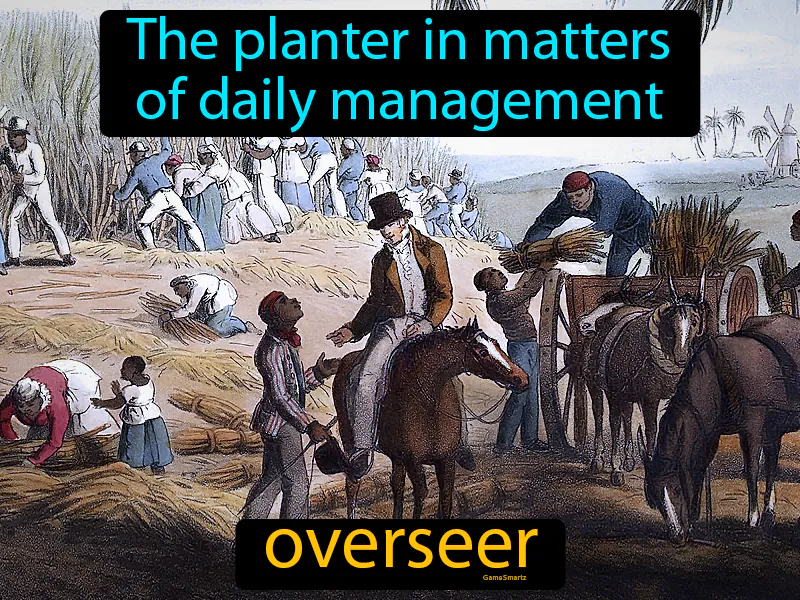Overseer
Overseer: Easy to understand
An overseer was a person responsible for managing daily operations on large plantations, especially in the Southern Colonies. They supervised enslaved workers, ensuring that crops like tobacco and cotton were planted, grown, and harvested efficiently. Their actions were crucial because they directly influenced the economic success of the plantation and the wealth of the colonial economy. The legacy of overseers can be seen today in modern management roles where leadership and productivity are still important, although the contexts and methods are vastly different. For example, a farm manager today might draw on skills of organization and oversight, but with a focus on fair labor practices and sustainable agriculture.

Practice Version

Overseer: The planter in matters of daily management. Overseer. An overseer in history was someone responsible for supervising and managing enslaved laborers on plantations.